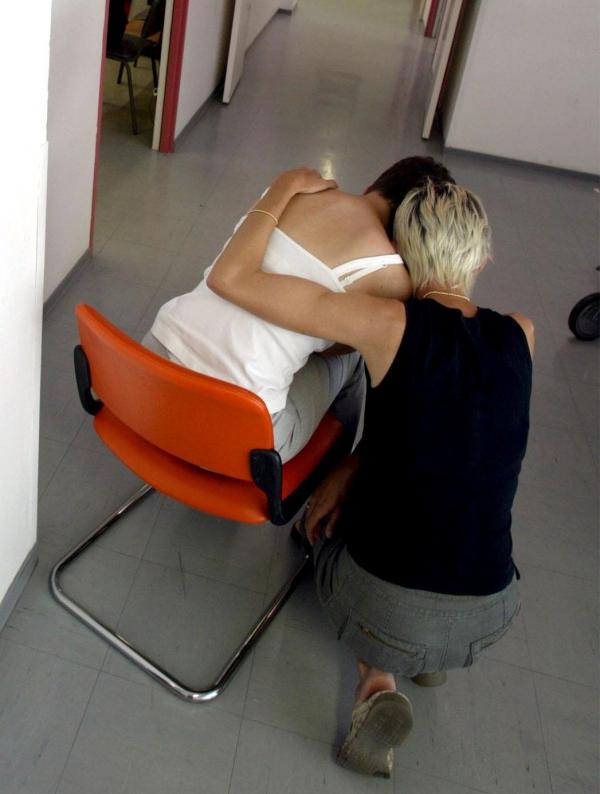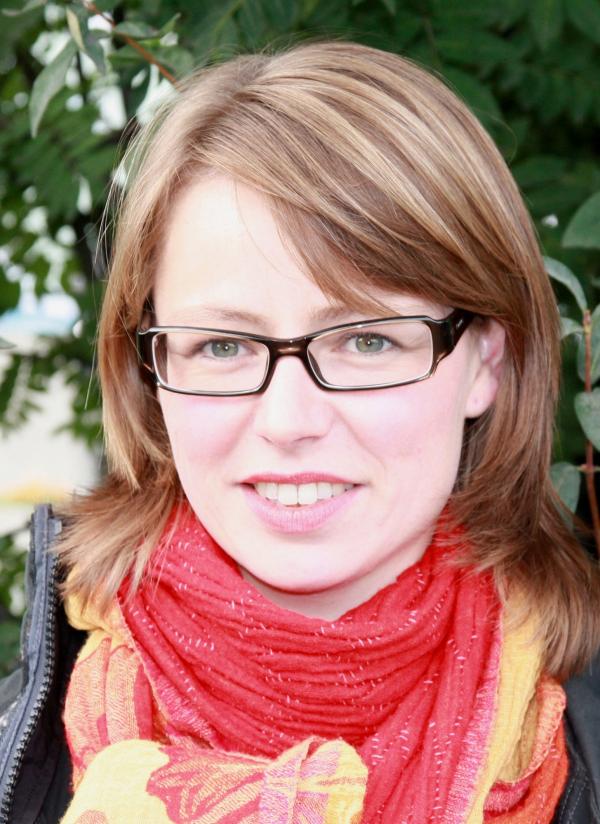“Our policemen do not to this day have a clear understanding [of domestic violence]. Because, if he, someone, beats the wife in the staircase [outside the apartment], it’s a criminal case. If he beats her in their kitchen, then it’s already interruption of privacy. Therefore, the police refuse to take on such cases,” explains an adviser at a Russian crisis centre, who is one of Stuvøy’s research informants.
In her recent doctoral thesis, Stuvøy explores the crisis centre movement in Russia through interviews with employees and volunteers at several crisis centres.
“The crisis centres are among the most successful NGOs that have emerged in civil society in the new Russia,” explains Stuvøy, adding that they operate under very different conditions from those Norwegian crisis centres are used to.

No overnight lodging
While Norwegian crisis centres are synonymous with a place of refuge where women can live for a period of time to escape a violent situation, the Russian crisis centres seldom offer overnight lodging.
“My informants often explain this by saying there are many other critical social problems in the area and they cannot demand too many resources,” says Stuvøy. Instead the employees and volunteers work closely with the police, health services and courts to gain an overview of where help is available for women who are victims of violence. Russia does not have a specific statute that covers domestic violence, thus wife-battering falls under general legislation.
“The women I interviewed have different opinions about whether a specific statute is necessary, but they all agreed that the judicial system does not deal adequately with cases of family violence,” says Stuvøy. As the above-mentioned statement by the crisis centre worker shows, many regard domestic violence as a private matter and not something for outsiders to become involved in. In addition, documentation is needed from both a doctor and the police to get a case through the judicial system, but many doctors and police are not very helpful with gathering the right kind of evidence.
“For this reason, the crisis centres look for individuals within the system who can be contacted when clients need help. They build a network of people who hold both the right positions and are willing to help,” explains Stuvøy. By working in this way, the crisis centres have built up a great deal of legitimacy and trust within the system. Stuvøy uses Pierre Bourdieu’s concept of social capital to explain what occurs: The crisis centres have very little money – that is, low economic capital – but they compensate this with high social capital through the trust they develop both within the public system (health services, judicial system and local authorities) and among clients.
Violence, not discipline, in the home
Another vital part of the crisis centres’ work is to give a name to what happens when women are abused by their husbands or other male family members.

“The situation for Russian women with regard to violence in the home is not so different from that of Norwegian women, but in Russia there is less awareness within society about what is actually happening. The crisis centres get the clients to understand that their husband’s violence or physical control of them is not something he has a right to do as head of the family,” says Stuvøy. The crisis centres also work to gain acceptance for this way of thinking within the support system and society at large.
Funding from abroad
The crisis centre movement in Russia has been built up largely with funding from abroad. Only two of the centres have overnight lodging – one of these has received funding from Norway through the Gender Equality Committee and the Norwegian Barents Secretariat, among others. In many cases, funds are allocated to establish information offices. In the early 1990s, a number of small offices with telephones and computers were opened in the districts. But after 11 September 2001, international funding for security for women in Russia has been given lower priority compared with other security objectives.
“In many cases, the employees continue to run the offices even though their funding has dried up,” says Stuvøy. When offices have been assigned different tasks, the telephone number is often still used as a hotline for battered women.
Domestic violence and security theory
Studies of security in political science have traditionally focused on military power and national borders. In recent decades, though, feminist security theory has challenged this hegemony.
“It is important to challenge the idea that security only entails military resources,” says Stuvøy, emphasizing that the international security debate has become somewhat more open to a gender perspective. This is apparent in UN Security Council Resolution 1325 on women’s participation in conflict resolution and safeguarding women’s rights during armed conflict and Resolution 1820 on the use of sexual violence as a weapon in armed conflict. The feministic perspective challenges the focus on military power by studying security from vantage points that are usually marginalized. This has been the basis for Stuvøy’s interest in the crisis centres from a security perspective.
“Bourdieu’s concept of symbolic power is useful in discussions with other security researchers because I think it can also be transferred to other studies of security. My study shows how the crisis centres use social capital ad hoc; they adapt their way of working to each individual situation and person they are in contact with. In this way they accumulate knowledge and can produce security for battered women where this is not built into the system,” says Stuvøy, and continues:
“As a producer of security, the centres also have a certain power. The concept of symbolic power raises the question of whether some actions have an unintended and undesired affect. In other words, is there something in the way the crisis centres work that creates insecurity?”
One such unintended effect arises when the crisis centres place a large part of the responsibility for breaking out of a violent situation on the women themselves, according to Stuvøy. The advisers at the centre provide knowledge and possible courses of action, but it is the women themselves who must have the ability and strength to manoeuvre within the system.
“The centres, which themselves work within a difficult field, use their symbolic power to push responsibility onto the client. Of course, this is not something they want, or perhaps are aware of, but by using Bourdieu’s concept we can identify what is happening,” says Stuvøy. She wants to introduce the situation of women who are victims of domestic violence in Russia into a larger academic debate.
“The same concepts from Bourdieu are used to analyze private military companies, for example. These companies depend on insecurity for their continued existence, and we can study the unintended effects of security production using the concept of symbolic power,” concludes Stuvøy.
Translated by Connie Stultz
Kirsti Stuvøy is a researcher at the University of Tromsø, and holds a PhD in political science. Her doctoral dissertation Security under Construction. A Bourdieusian Approach to Non-state Crisis Centres in Northwest Russia was completed earlier this year.
